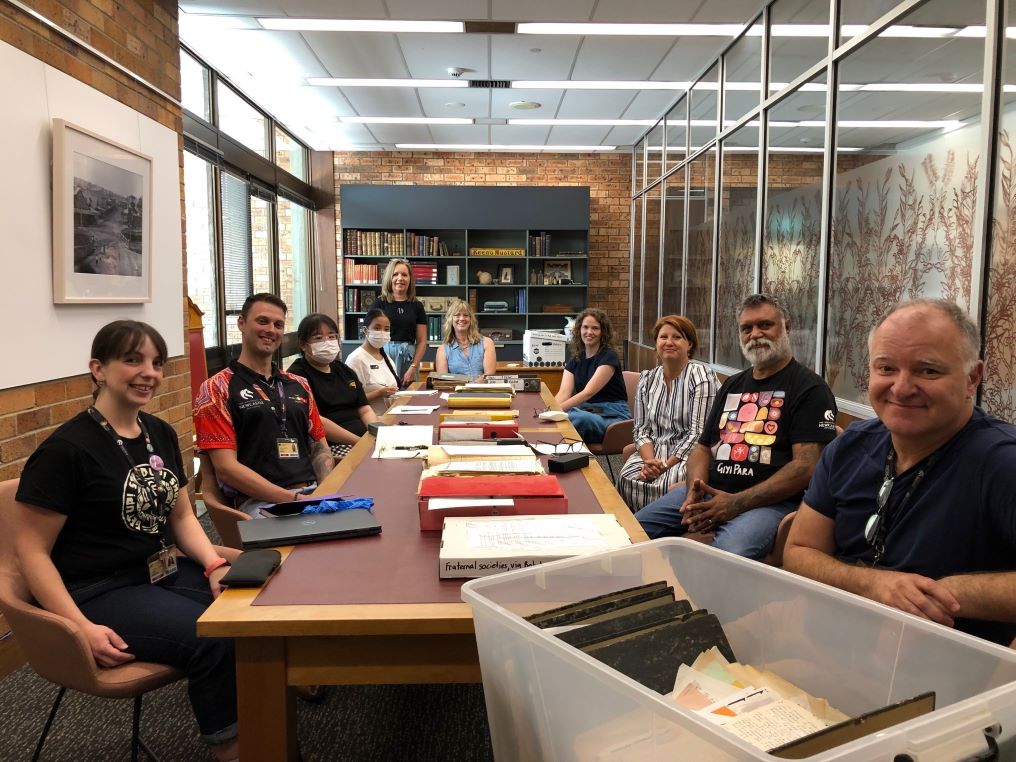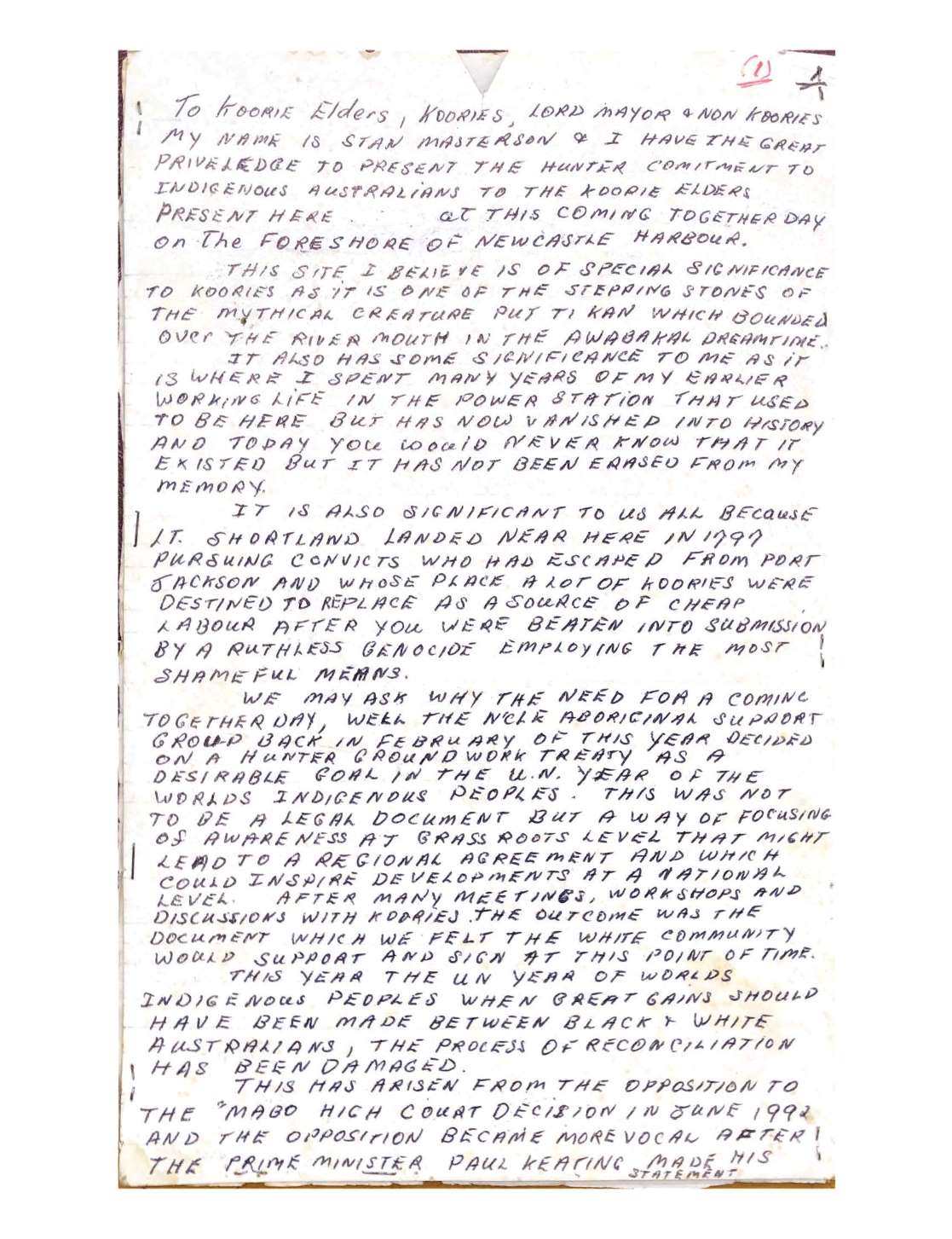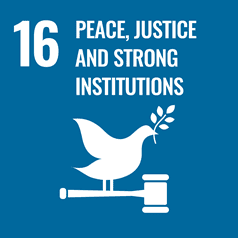Papers of Newcastle Aboriginal activist to see the light of day: Stan Masterson Collection
Newcastle is well-known for its energetic trade unionism dating back to the 1870s, more obscure is their support for Indigenous activists fighting injustice, but all this is about to change with the digitising of the papers of the late Stan Masterson through the University of Newcastle’s Special Collections Services.
Stan Masterson was the President of the Aboriginal Advancement Committee of the Trades Hall Council and was one of Newcastle’s foremost non-Indigenous activists for Aboriginal rights in Newcastle in the 1960s through to the early 21st century.
When he passed away, his family entrusted his papers to the Deputy Head of the Wollotuka Institute, Dr Ray Kelly.
Dr Kelly stored some of these papers in his garage whilst he gave others to the Purai Global Indigenous History Centre for safe-keeping.
Queries about what to do with the collection by Purai has now morphed into a fully-fledged project involving UoN’s Wollotuka Institute, Purai and the GLAMX Living Histories Digitisation Lab administered by the Special Collections section of the University Library.

As part of this process, Indigenous students and researchers will be trained in the compilation, digitisation and cataloguing of this important archive.
The Masterson Collection will supplement the Copley Archive which forms the basis of a pilot project, led by Purai Co-Directors, Associate Professor Kate Senior and Dr Ray Kelly, and Professor Victoria Haskins, which will reconstruct and return archival evidence and records to the Aboriginal communities at Ngukurr, an Indigenous community in Southeast Arnhem Land, and the Hunter region.
Following on from this project, the collection will also be a central component of a 2023 ARC Discovery grant submission, From Ngukurr to Newcastle: Indigenous advocacy, activism, networks and influence, 1960s–present.
In a collective statement, Professor Senior, Professor Haskins, Dr Kelly and Emeritus Professor John Maynard said, “the collection is of great historical and community significance.”
“It contains extensive evidence of the formation and development of late twentieth century Aboriginal activism in Australia and details the importance of community advocates here in the Hunter region (particularly Newcastle).”
“We are confident in saying that this collection is of the highest historical value, especially in light of the Uluru Statement of the Heart’s call for Voice, Treaty, Truth as well as being of interest to researchers nationally and internationally,” they stated.
Professor Haskins also said that the collection will be useful to PhD candidates making important contributions to the nation’s process of truth-telling by exploring topics such as the: kidnapping of Aboriginal people in colonial Queensland; connections between the early Australian Community Party and the Aboriginal rights movements; and writings of author, Katie Langloh Parker, on Aboriginal culture in colonial NSW.
Dr Kelly is adamant that the collection stay accessible to the local community at UoN as the aims and agenda of Stan Masterson was, first and foremost, to empower Aboriginal people.
Stan Masterson: A man ahead of his time
In a speech made 31 years ago in 1992 at the Coming Together Day on the foreshore of Newcastle harbour, Masterson outlined a document he and other Indigenous leaders were working on called the “Hunter Groundwork Treaty”.
“This was not to be a legal document but a way of focusing awareness at a grassroots level that might lead to a regional agreement and which could inspire developments at a national level,” he said.
 Masterson praised the Newcastle unions for their support of Indigenous Australians' fight for social justice and equality saying that it was the first Trades Hall Council to have an Aboriginal Advancement Committee.
Masterson praised the Newcastle unions for their support of Indigenous Australians' fight for social justice and equality saying that it was the first Trades Hall Council to have an Aboriginal Advancement Committee.
It was also the first local council, along with the Cathedral Church of Christ the King, to fly the Aboriginal flag.
Newcastle City Council appointed the first Aboriginal May Queen, Patricia Russell in 1971, who was crowned by the then President of the ACTU, Bob Hawke.
Other support included UoN being the first university to accept mature-age Aboriginal students, support for the voluntary Aboriginal settlement scheme and the establishment of Kirinari and Durangaling Hostels enabling secondary school students from regional areas to attend (specialised) schools in town.
Masterson also praised the Newcastle's support of Indigenous-led campaigns, which included the drive against the wages trust act in QLD, thus enabling strong and respectful relationships to develop between local Aboriginal and non-Indigenous people and their communities.
“This also extends to the Northern Territory with the Gurrindji people in their struggle with Vestey Holdings and the Federal Government for land rights after visits from Mick Rangiara and Dexter Daniels,” he said.
Contact
- Jacqueline Wright
- Phone: +61 2 4921 7408
- Email: jacqui.wright@newcastle.edu.au
Related news
- Post‑mining research comes to life in community art exhibition
- Exciting International Opportunities for Creative Industries Students coming this year
- World-leading MRI upgrade boosts research capability at HMRI Imaging Centre
- New equipment brings cancer's complexity into focus
- Yes, weight-loss drugs work but nutrition needs attention
The University of Newcastle acknowledges the traditional custodians of the lands within our footprint areas: Awabakal, Darkinjung, Biripai, Worimi, Wonnarua, and Eora Nations. We also pay respect to the wisdom of our Elders past and present.

